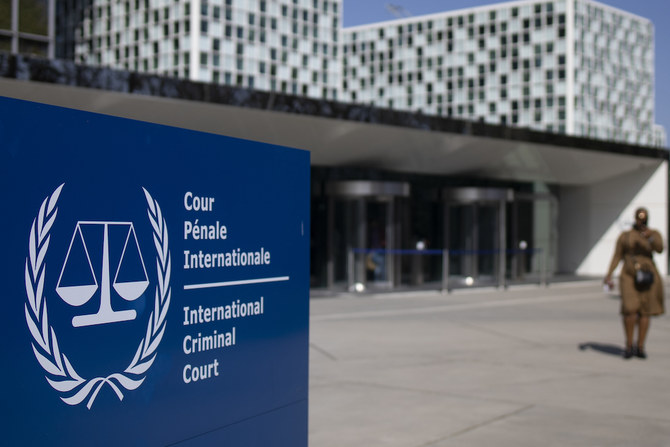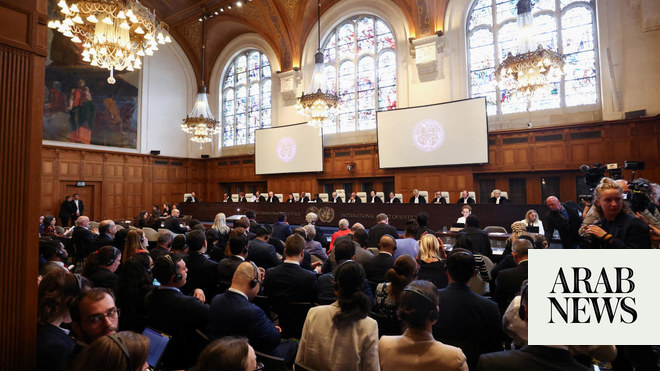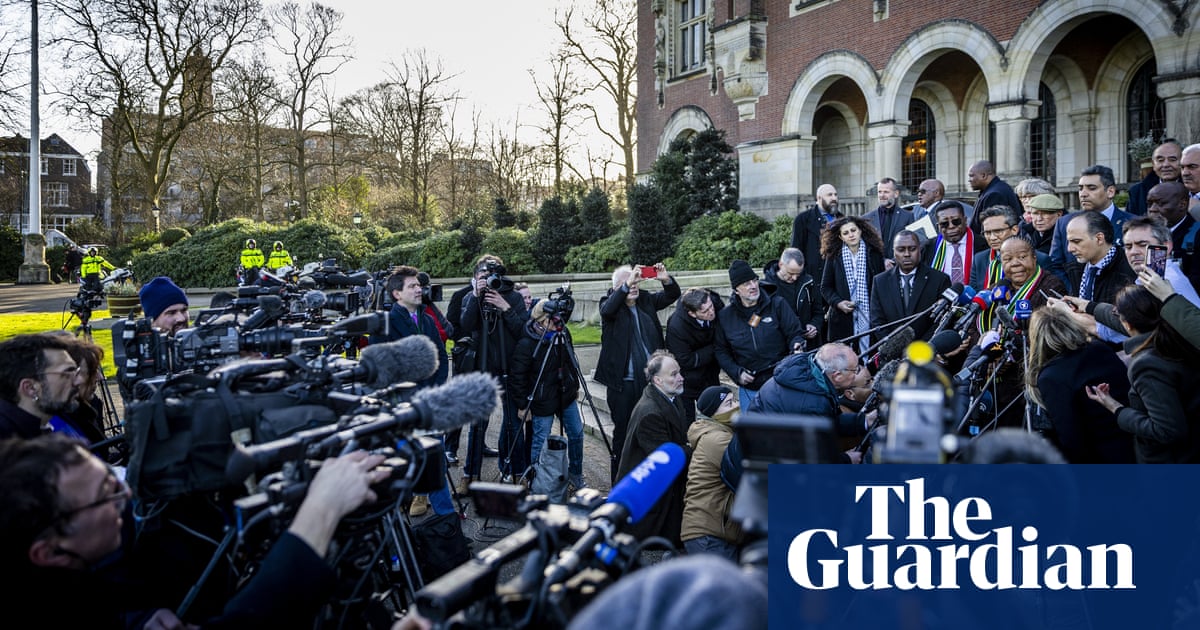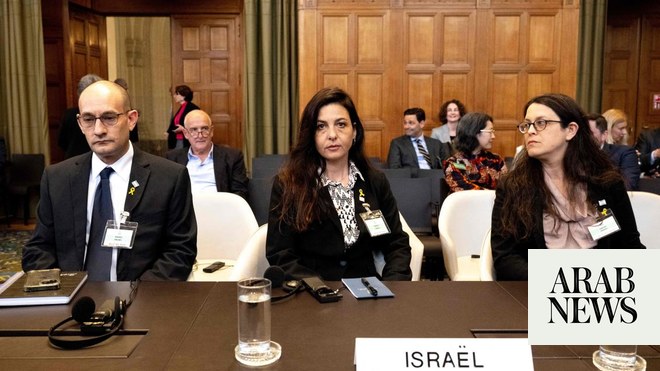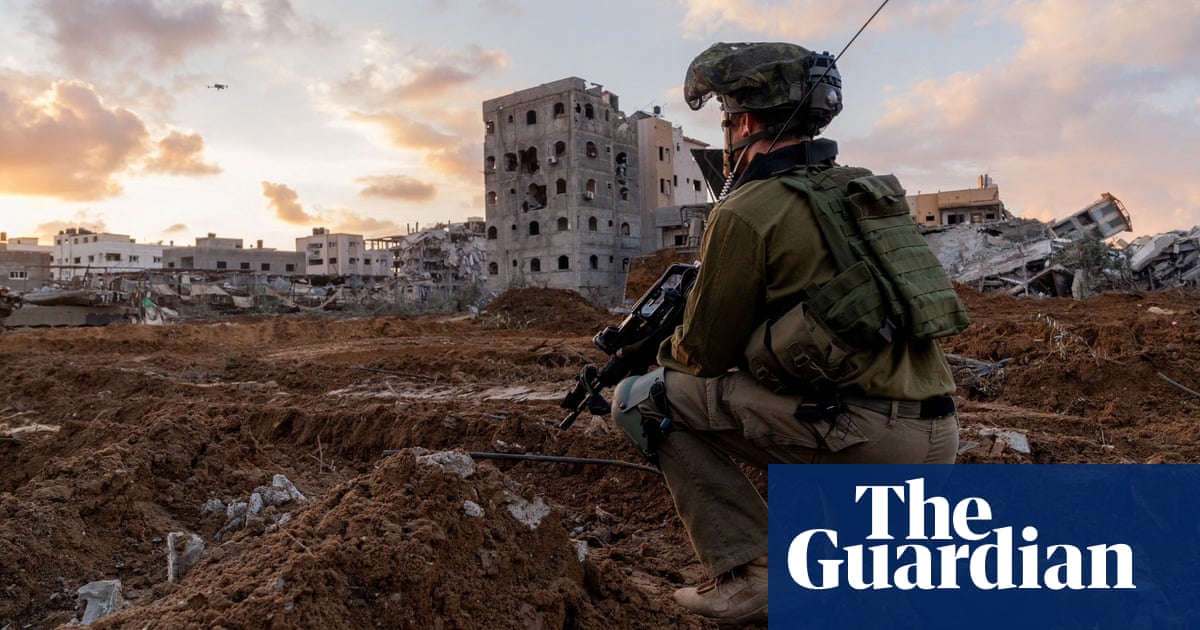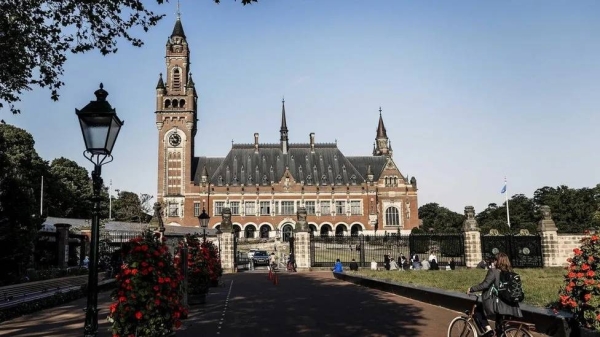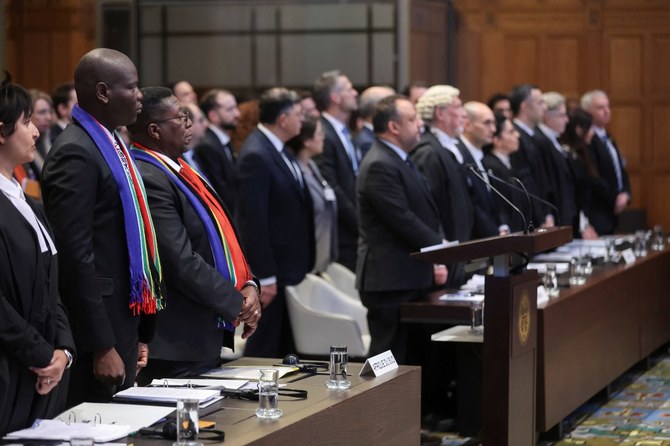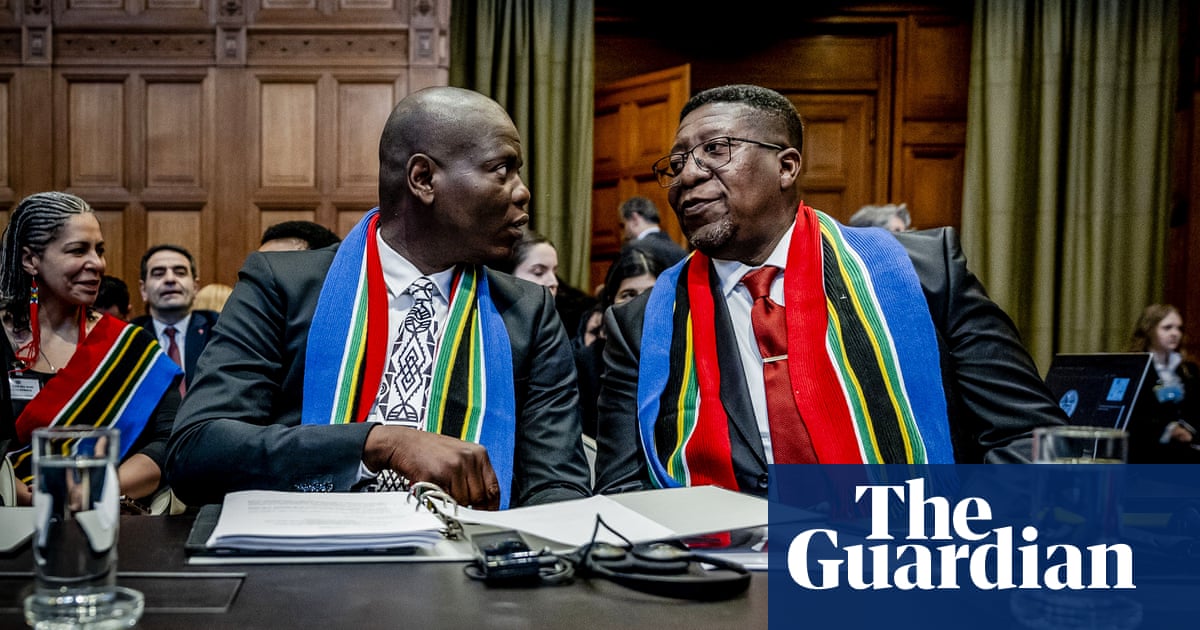
Israel has shown “chilling” and “incontrovertible” intent to commit genocide in Gaza, with full knowledge of how many civilians it is killing, the UN international court of justice in The Hague has heard, at the opening of a case Israel has described as baseless.
South Africa, which has brought the case, alleged “grave violence and genocidal acts” by Israel, on the first morning of the two-day hearing amid a febrile atmosphere outside the court in The Hague. It called on the judges to order an immediate ceasefire.
It said evidence of genocide was present in the number of civilians killed by Israel and also in statements made by its political and military leaders, including the prime minister, Benjamin Netanyahu. In support of its case, it showed photos of Palestinian mass graves, Israeli flags adorning wreckage in Gaza and what it claimed were videos of Netanyahu expressing support for genocide, as well as troops – taking his cue, it alleged – chanting “no uninvolved citizens”.
“Genocides are never declared in advance but this court has the benefit of the past 13 weeks of evidence that shows incontrovertibly, a pattern of conduct and related intention that justifies a plausible claim of genocidal acts,” the South African lawyer Adila Hassim told the court.
Her colleague Tembeka Ngcukaitobi said there had been “reiteration and repetition of genocidal speech throughout every sphere of state in Israel” such that “the evidence of genocidal intent is not only chilling, it is also overwhelming and incontrovertible”.
Israel, which has denied the allegations, will give its response on Friday. It has said it is waging war against Palestinian militants, not the Palestinian people. In a statement, Israel’s foreign ministry accused South Africa of rank hypocrisy, saying it had ignored “the fact that Hamas terrorists infiltrated Israel, murdered, executed, massacred, raped and kidnapped Israeli citizens, just because they were Israelis, in an attempt to carry out genocide”.
A march including relatives of hostages held since Hamas’s 7 October attack on southern Israel, in which people, mainly Israeli civilians, were killed and 250 people taken hostage, arrived at the court just before proceedings began.
Pro-Palestinian and pro-Israel protesters were in separate areas but briefly came face-to-face and tried to drown out each other’s chants.
Hassim said Israel had dropped 6,000 bombs a week in the first three weeks after 7 October, and had used 900kg (2,000lb) bombs – “some of the biggest and most destructive bombs available” – 200 times in southern areas of Gaza it had designated as safe.
“Israel has killed an unparalleled and unprecedented number of civilians,” she said. “With the full knowledge of how many civilian lives each bomb will take. More than 1,800 Palestinian families in Gaza have lost multiple family members and hundreds of multi-generational families have been wiped out with no remaining survivors … This killing is nothing short of destruction of Palestinian life.”
In addition to at least 23,570 people, mostly women and children, being killed during Israel’s offensive in Gaza, according to its health ministry, Hassim said the bodily and mental harm inflicted on Palestinians and the imposition of conditions intended to bring about destruction, were also evidence of genocide. She alleged the displacement of Palestinians, widespread dehydration and starvation and an assault on the healthcare system.
The Arab League voiced its support for the South African case on the eve of the hearing, following in the footsteps of the 57-member state Organization of Islamic Cooperation. Among the individuals in court to back South Africa were the three-time French presidential candidate, Jean-Luc Mélenchon, and the former leader of the UK Labour party, Jeremy Corbyn. They were cheered as they joined the South African justice minister, Ronald Lamola, who was greeted by cries of “Thank you, South Africa” when he addressed the pro-Palestinian crowd outside the court after the hearing.
Vaughan Lowe KC, part of the South African legal team, said: “Nothing can ever justify genocide no matter what some individuals within the group of Palestinians in Gaza may have done, no matter how great a threat to Israeli citizens might be, genocidal attacks on the whole of Gaza and the whole of its population with the intent of destroying them cannot be justified.”
Blinne Ní Ghrálaigh KC said the international community had “repeatedly failed” people in Rwanda and Bosnia and Rohingya people in Myanmar.
Ní Ghrálaigh told the court the world should be horrified, adding: “Some might say that the very reputation of international law, its ability and willingness to bind and to protect all people equally, hangs in the balance.”
In a furious response hours after the close of the first day’s proceedings, Netanyahu said: “We are fighting terrorists, we are fighting lies. Today we saw an upside down world. Israel is accused of genocide while it is fighting against genocide.” He vowed Israel would maintain the right to defend itself until it had achieved “total victory”.
If South Africa is successful, it wants Israel to report to the court within a week how it will comply with the provisional measures and then regularly thereafter. It is entitled to take Israel to the ICJ by virtue of being a fellow signatory to the genocide convention.
Unlike the international criminal court, which is also investigating alleged war crimes by Hamas and Israel, the ICJ only tries states, not individuals. Its cases can take years to resolve but South Africa’s request for provisional – or interim – measures means the 17 judges, including one from each side, will seek to reach a decision as soon as possible.
Additionally, they need only decide whether at least some of the alleged acts are capable of falling within the provisions of the 1948 genocide convention – enacted in the wake of the mass murder of Jews in the Holocaust – not that Israel’s conduct amounts to genocide. The convention defines genocide as “acts committed with intent to destroy, in whole or in part, a national, ethnical, racial or religious group”.
The court’s rulings are final and cannot be appealed, but it has no enforcement powers and countries do not always follow the court’s verdicts; the ICJ has ordered Russia to stop its invasion of Ukraine, for example. An adverse ruling for Israel would nevertheless increase political pressure on the country, with many speculating it could serve as a rationale for sanctions.




